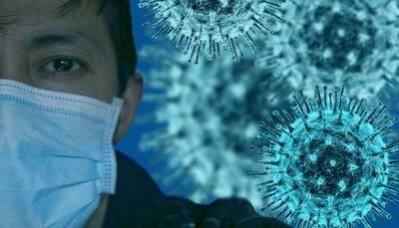
As COVID cases spike in India, particularly in the southern part of the country, extreme caution is being taken. Necessary measures are being put in place to curb the spread of the new COVID sub-variant JN.1. Karnataka is taking the initiative to control the spread as cases are slowing peaking.
Out of 74 new COVID cases, Bengaluru reported 57, which is a cause for concern during the holiday season. In wake of this, the state government has made it mandatory for all COVID positive patients to isolate at home for a period of 7 days. All symptomatic primary contacts must undergo testing.
The advisory also instructs employers, both private and government run, to grant one week leave for home isolation and only return to work once recovered fully. All COVID patients in general wards, and those in home isolation, will be visited by doctors and staff from UPHCs and Namma clinics.
Karnataka Health Minister Dinesh Gundu Rao has assured that nothing is "alarming" and that the government is well prepared.
"430 cases are active out of which 400 are in home isolation and the remaining are in hospital. 7-8 patients are in ICU. As of now, things are okay. We have done genome sequencing. There are 34 cases of JN.1 variant of COVID. We are well prepared. Nothing is alarming. K'taka mandates one week home isolation mandatory for COVID patients; govt issues advisory. the majority of the cases are in Bengaluru," he told ANI.

He further noted that elderly people will be booster vaccines if they can and about 30,000 vaccines are being procured from the Centre to be distributed in taluk and district hospitals.
Senior citizens and those with comorbidities must wear face masks and parents are advised to take extreme care of children. If kids are showing symptoms of fever, cold and cough, do not send them to school, the advisory said.
With only days away from New Year celebrations, which is a grand affair in Bengaluru, the government hasn't announced any restrictions so far.
JN.1 has numerous changes never seen in previous variants
JN.1 has numerous changes that have never been seen in previous variants, according to experts on Tuesday. First detected in Luxembourg in August, JN.1 is currently present in about 41 countries, including India.
Due to its rapid spread, the World Health Organisation (WHO) has classified JN.1 as a separate variant of interest (VOI), from the parent lineage BA.2.86. It was previously classified as VOI as part of BA.2.86 sublineages.
Till date, India reportedly has 69 cases of JN.1 variant -- from Goa, Maharashtra, Karnataka, Kerala, Tamil Nadu, and Telangana.
JN.1 variant is a descendent lineage of Omicron sub-variant BA.2.86, with the earliest sample collected on August 25, 2023.
In comparison with BA.2.86, JN.1 has the additional L455S mutation in the spike protein -- which has immune-evasion properties.
"JN.1 is an all new variant with numerous changes that had never been seen in any commonly circulating lineage before. This is unlike other recent variants, which were merely a few mutations from their predecessor," Dr Rajeev Jayadevan, co-chairman of the National Indian Medical Association Covid Task Force, told IANS.
"Therefore, the disease patterns from an immune evasiveness and spread capability of this variant needs careful attention," he added.
He said immune invasiveness of a variant as the ability of the virus to overcome the existing immune response within an individual.
The WHO, in its latest epidemiological update, said that the global number of new Covid-19 cases has increased by 52 per cent during the last one month. The UN health body also reported an increase in hospital, ICU admissions as well as deaths globally.
While EG.5 remains to be the most reported VOI globally, as per the WHO, JN.1 could increase the burden of respiratory infections in many countries, it said.
"With the limited information available, we are aware that JN.1 has suddenly increased in numbers around the world, and is rapidly displacing the earlier circulating sublineage XBB. This means that JN.1 has the ability to overcome immunity generated by prior infection, vaccination, booster or any combinations of the above," Dr Jayadevan said.














